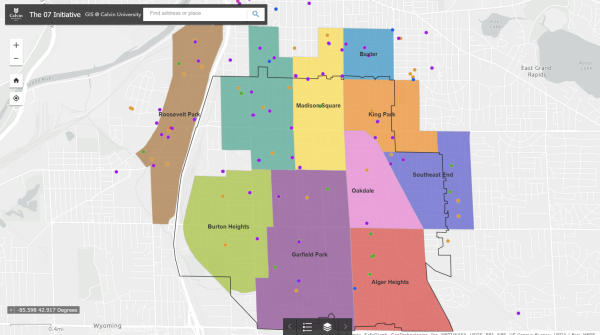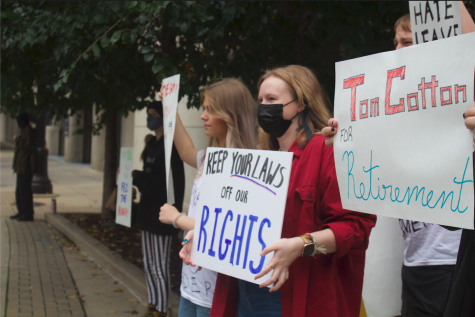Calvin alumna Betsy DeVos confirmed as education secretary
With Vice President Mike Pence’s tie-breaking vote, the Senate confirmed Betsy DeVos, a Calvin College alumna, to be education secretary Tuesday morning.
DeVos now holds the highest governmental position a Calvin College graduate has ever had: a seat on the President’s Cabinet.
Tuesday’s vote followed an all-night demonstration by Democrats, who held the floor for a full 24 hours in opposition to the nomination. Democrats sought to persuade one more Republican senator to vote against DeVos’s nomination; two Republicans had already pledged to vote “no,” leaving the predicted vote a 50-50 tie.
When none of the Republicans budged and the confirmation came to a vote, Vice President Mike Pence was called upon to cast a tie-breaking vote in favor of DeVos, the first time the Senate has needed a tie-breaker in the confirmation of a Cabinet appointee.
DeVos’s 51-50 confirmation was the narrowest yet in the formation of Trump’s cabinet; no nominations so far have been rejected by the Senate.
She has faced a staunch opposition that mobilized against her in unprecedented numbers. In the week before the Tuesday vote, the Senate offices reportedly fielded an average of 1.5 million calls a day, a number that Sen. Brian Schatz, D-Hawaii, said was a record high for the Senate.
The reaction at DeVos’s alma mater has been mixed.
Calvin president Michael Le Roy said, “We congratulate Betsy [on her confirmation] and we pledge to pray for her as she takes on her important tasks and duties in the days, weeks, months and years to come. Her portfolio includes higher education, so we also stand ready to be a resource for her if she should need that as she pursues her work.”
Le Roy described DeVos’s new position as her pursuing her vocation:
“Calvin students are called to make a difference as Christ’s agents of renewal and our hope is that when they graduate they will continue to be receptive to God’s calling,” said Le Roy. “In accepting the nomination, Betsy, too, is living out the value of service for the common good she learned on Calvin’s campus almost four decades ago.”
In late January, thousands of Calvin alumni signed a letter opposing DeVos’s nomination. The letter concluded: “Our undergraduate education prepared us to be engaged and informed citizens who support public servants who seek to serve effectively and competently. This is precisely why we oppose the nomination of our fellow alumna.”
The letter was widely covered in local media outlets, and the story was even picked up by The Washington Post on January 24.
In response to the high-profile opposition in the Calvin community, alumni supporters of DeVos created a Facebook page called Knights for Betsy DeVos.
Allan Hoekstra, a member of the Calvin board of trustees who has worked for the DeVos family, circulated a letter calling DeVos and her husband “generous, gracious, compassionate and genuinely interested in the betterment of our communities and our nation” and supporting the nomination.
DeVos, in her first speech to education department staff as secretary, promised to reach out to critics as well as backers:
“I am committed to working with everyone and anyone — from every corner of the country, from every walk of life, from every background and with those who supported my nomination and those who did not — to protect, strengthen and create new world-class education opportunities for America’s students,” DeVos said.
DeVos also indicated during her confirmation hearing that she intended to follow Trump’s policy agenda for the education department during her tenure.
Though education was not a major focus of Trump’s campaign, he did call for an end to Common Core and proposed a voucher system that would give 11 million low-income children $12,000 a year each to attend a school of their choice. Trump’s proposal would total $20 billion in spending, which would have to be approved by the spending-averse Republican Congress.
As education secretary, DeVos oversees the implementation of federal education law, in particular, anti-discrimination laws like the Individuals with Disabilities Education Act, and she came under fire for avoiding or appearing not to understand these laws in her confirmation hearing.
NPR points out that education spending is largely under state and local jurisdiction, with less than 10 percent of K-12 funding coming from federal funding.
Even so, DeVos holds a measure of power unprecedented for a Calvin College graduate, at least for the next four years.







